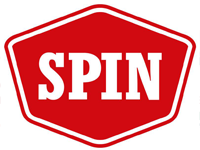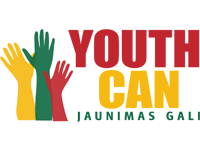We Play Together! is a an Erasmus+ Youth Cooperation Partnership project with the aim of supporting the social inclusion of displaced Ukrainian youth within local communities through sport and increasing the receptiveness of the grassroots sport sector to welcome migrant and refugee youth in the Baltic-Polish region.
We Play Together Lead Organisation

SPIN is an Estonian NGO providing development opportunities and reduce antisocial behaviour amongst young people. To achieve this, SPIN offers to young people living in unsafe circumstances a free sports-based program that involves two thirds of training and one third of focused development social skills in a strategically planned set of workshops with the involvement of sport coaches, youth workers, social pedagogue or a psychologist. They currently have 28 groups and 56 trainers all across Estonia.
We Play Together Partners

Latvian Sports Federations Council (LSFC) is a non-governmental foundation created in 1993 with the purpose to unite sport federations in Latvia and act as their umbrella organisation bringing together and representing 94 recognised sports federations, 184 recognised sports types and 1915 collective members having more than 120 000 people practising sports. It is composed of 87 sports federations, five sports sphere federations and three custom sports federations for the disabled. LSFC ensures that all federations get an equal support to implementation of their sports programmes and enables everyone to engage in sport activities and lead an active lifestyle.

The Kazickas Family Foundation in Lithuania has established the Youth Can programme which brings sports and life skills training to the most vulnerable children in rural areas of Lithuania. The program reaches close to 200 children in 10 Lithuania's small towns (focusing exclusively on towns with less than 3000 inhabitants) with free weekly sports practice, discussions, meetings with role models, and educational/career guidance trips. Half of the time is spent on sport and half of the time on teaching life skills. The core principles focus on the question on how to create the type of environment that would truly enable all kids and young adults of Lithuania to flourish and the belief that all youth can and should have the opportunities to achieve, play, learn and have fun through sport.

V4Sport is a Polish NGO that specializes in designing human behaviours, with the aim to get more people and especially children more active every day. In order to achieve this, complex programs are developed and delivered, that are based on cross sectoral partnerships, where private, public and non-governmental organizations work together to develop new ways of combating inactivity. V4SPORT’s team is developing solutions within a framework of an innovative methodology of education on the move as there is not one single topic kids need to learn only while seated.

ISCA (International Sport and Culture Association) is a democratic, non-governmental and not-for-profit umbrella association which has 74 Full and Premium Members and cooperates with an active global community of 3669 Movers, MOVE Agents, newsletter subscribers and online learning users who promote physical activity, social inclusion through sports, healthy lifestyle and grassroots sport in general. It was established in 1995 has the vision of “A world of physically active citizens in vibrant civil societies”. Integration of Refugees Through Sport has been ISCA’s focus for many years now and all the resources from this field have been gathered to the platform Integration of Refugees Through Sport.



